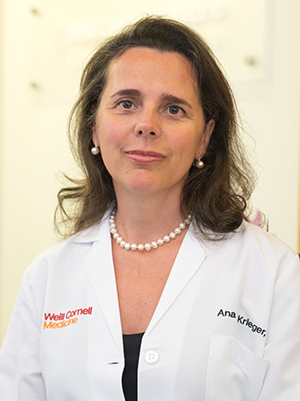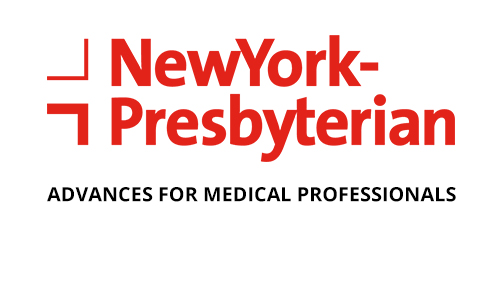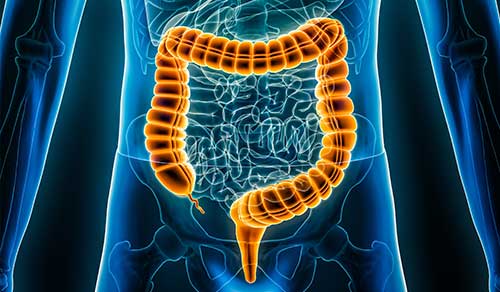A Wake-Up Call for Addressing Sleep Deprivation
Sleep plays a pivotal role in good health and well-being throughout life, and yet for millions of Americans sleep is regularly interrupted or insufficient. To address the multiple needs of this growing population, NewYork-Presbyterian/Weill Cornell Medical Center established the Weill Cornell Center for Sleep Medicine in 2010, which today is one of the largest academic medical programs of its kind in the United States and accredited by the American Academy of Sleep Medicine.

Dr. Ana C. Krieger
“Sleep deprivation is a common issue in modern society,” says Ana C. Krieger, MD, MPH, Chief of the Sleep Neurology Division in the Department of Neurology and the Medical Director of the Center for Sleep Medicine at Weill Cornell Medicine. “It is clear that both adults and children are experiencing sleep loss associated with the demands of modern life as well as the lack of adequate routines and inappropriate use of technology. There is a biological necessity for sleep, which includes enabling the brain’s glymphatic system to clear out toxins and other products that are not necessary or may even be impairing brain function. Inadequate sleep may lead to accumulation of these toxins and waste products in the brain.”
“People with disturbed, unrefreshing, or inadequate sleep do not feel well and often have problems performing their daily activities,” continues Dr. Krieger. “They may be fatigued, drowsy, or irritable during the day, and have difficulties with memory, concentration, and motivation. Over time, untreated sleep disorders can lead to a higher risk of hypertension, diabetes, obesity, depression, heart attack, and stroke.”
For more than a decade, Dr. Krieger, a renowned specialist in sleep medicine, has guided the growth of the Center for Sleep Medicine at Weill Cornell Medicine, an interdepartmental collaboration between the Departments of Neurology and Medicine that brings together sleep medicine specialists with consultants in neurology, internal medicine, pulmonary medicine, otolaryngology, pediatrics, psychiatry, psychology, bariatric surgery, cardiology, endocrinology, and nutrition to assist in the care of patients with sleep disorders.
“Being part of an academic environment enables us to address the full range of sleep disturbances. Our specialists come from different backgrounds, with a common denominator being their training in sleep medicine. This allows us to refer patients as needed to a provider with specific expertise within our own practice,” says Dr. Krieger. “Our goal is to help patients maximize the benefits of sleep, improving their ability to perform various functions in life.”
Since COVID-19, Dr. Krieger’s team has been offering telemedicine visits to patients all over the United States, currently providing close to 1,000 visits a month.
The Center’s sleep specialists are committed to uncovering all of the contributing factors to patients’ sleep disturbances, employing both established and innovative management and treatment strategies to create personalized plans to optimize care. With a team of 40 physicians and support staff, the Center has grown from treating 5,000 patients annually to more than 15,000 each year for the full spectrum of sleep disorders. These include insomnia, restless legs syndrome and periodic limb movements during sleep, parasomnias and REM behavioral disorder, narcolepsy and cataplexy, circadian rhythm sleep disorders, and rare and complex sleep disorders. The Center, which is equipped with 12 sleep study rooms for overnight testing, also provides interventions, including continuous positive airway pressure (CPAP) and oxygen or ventilatory treatment and at-home testing.
Dr. Krieger notes that getting to the source of the patient’s problem requires a comprehensive assessment. “Sometimes patients are referred for seemingly simple issues, such as snoring. As we evaluate their condition, we often identify other sleep-related problems, including inadequate habits and behaviors that may interfere with sleep,” she says. “Dietary habits and the use of supplements, stimulants, or alcohol are also important aspects to be considered when evaluating patients with sleep disturbances.”
The sleep medicine team also diagnoses and treats sleep-related conditions, including ill-advised sleep practices, stress, anxiety, or depression that can contribute to impaired sleep and its impact on mental health and emotional functioning. Since COVID-19, Dr. Krieger’s team has been offering telemedicine visits to patients all over the United States, currently providing close to 1,000 visits a month.
Addressing a Sleeping Giant
Sleep apnea is among the most prevalent conditions treated at the Center. “Sleep apnea is a huge problem, estimated to be affecting more than 40 million Americans. It’s also estimated that over 85 percent of sleep apnea cases haven’t yet been diagnosed. And because of increased rates of obesity, obstructive sleep apnea is becoming even more common,” says Dr. Krieger. “These patients are at increased risk for atrial fibrillation, heart disease, and stroke.” Sleep apnea is also associated with motor vehicle accidents, a significant decrease in work productivity and increases the potential for workplace accidents. As a result, the economic burden of untreated sleep apnea approaches nearly $150 billion.
Apnea cases are categorized by how many times per hour breathing is interrupted: five to 15 is considered mild, 15 to 30 moderate, and above 30 severe. But in the worst cases, Dr. Krieger says, “It can be as frequent as 130 times an hour. There are also different types of sleep apnea. Obstructive is the common type associated with snoring, and central sleep apnea is generally related to cardiovascular and neurological diseases. Some patients have both.”
“Since activated platelets play an important role in cardiovascular disease, the objective of this study was to determine whether platelet reactivity was altered in patients with obstructive sleep apnea with intermittent nocturnal hypoxemia.” — Dr. Ana C. Krieger
A recent multicenter study led by Dr. Krieger at Weill Cornell Medicine and in collaboration with the National Institutes of Health and the National Heart, Lung, and Blood Institute, investigated mechanisms of vascular disease in obstructive sleep apnea to determine potential interventions, with a goal to prevent the development of cardiovascular disease in these individuals. “We know that obstructive sleep apnea is independently associated with increased risk for stroke and other cardiovascular diseases,” notes Dr. Krieger. “Since activated platelets play an important role in cardiovascular disease, the objective of this study was to determine whether platelet reactivity was altered in patients with obstructive sleep apnea with intermittent nocturnal hypoxemia.”
The research represents an original approach to define mechanisms that underlie the high incidence of occlusive vascular events in patients with obstructive sleep apnea. “Characterizing these mechanisms will lead to a better understanding of the pathways involved in the development of cardiovascular disease and help identify potential therapeutic strategies targeting the reduction or avoidance of endothelial injury in order to reduce the morbidity and mortality associated with sleep apnea,” says Dr. Krieger.
Findings of the study, published in the February 8, 2020, issue of Sleep and Breathing, demonstrated the presence of increased platelet activation in otherwise healthy subjects with intermittent nocturnal hypoxemia due to underlying obstructive sleep apnea. The authors conclude that this prothrombotic milieu in the vasculature is likely a key contributing factor toward development of thrombosis and cardiovascular disease.
The Many Faces of Insomnia
Insomnia is a common sleep problem that can be associated with a number of medical issues, some more serious than others. “Insomnia is often used as a catch-all category for many types of sleep problems,” says Dr. Krieger. “Causes for insomnia are many, including medication-related, stress-induced, and depression, or it may be due to other conditions such as sleep apnea, restless legs syndrome, or changes in the circadian rhythm. An in-depth evaluation is required to identify and treat the underlying problem.”
Typically, the Center’s sleep medicine specialists rely on both non-pharmacologic and pharmacologic approaches to manage patients with insomnia. Behavioral modification approaches have been found to be very effective, especially when used in conjunction with patient education.
Dr. Krieger and her team also treat idiopathic hypersomnia, a chronic neurological sleep disorder in which individuals crave sleep in the daytime no matter how many hours they sleep at night.
“Parasomnias are disruptive sleep disorders that involve behavioral manifestations during sleep,” adds Dr. Krieger. “These include physical or verbal behaviors, such as sleepwalking, sleep talking, night terrors, acting out dreams, and falling out of bed. They can be triggered by sleep deprivation, stress, or even medications. Underlying sleep disorders or seizures may also be present and diagnosing them involves a lot of detective work.”
Dr. Krieger and her team also treat idiopathic hypersomnia, a chronic neurological sleep disorder in which individuals crave sleep in the daytime no matter how many hours they sleep at night. “Hypersomnia conditions may be triggered by an infection or an autoimmune or inflammatory process,” says Dr. Krieger, who serves on the Board of Directors of the Hypersomnia Foundation. “We’re trying to understand the underlying factors that lead to hypersomnia.”
Dr. Krieger notes that sleep disturbances can result from external factors, particularly those related to today’s fast-paced and highly technological society. “In this 24/7 world, we are constantly exposed to excessive light, particularly prior to bedtime, which serves as a stimulus for the brain, leading to poor sleep,” she says. “We use electronics to communicate and research information at any time of the day. Technology is amazing. We just need to know how to instill discipline in our routine so that it does not impair our sleep. Our bodies are not made to function around the clock. Smart use of technology on the appropriate hours of our circadian rhythm is key to adequate sleep.”
Advancing the Management of Sleep Disorders
Dr. Krieger, who is a clinician-scientist and principal investigator on collaborative multidisciplinary research projects in sleep medicine, has published extensively in the field. Recent lines of research include investigating endovascular function and how vessels react in terms of atherosclerosis or thrombosis development in relation to exposure to low oxygen or sleep apnea. “We are also looking at heart rate variability and how the heart’s rhythm changes in relation to one’s breathing at night,” she says.
In a collaborative New York State-based grant, Dr. Krieger and colleagues at Cornell University and Hunter College recently addressed sleep disturbances in patients with advanced terminal illness. According to the researchers, there are no practice-based recommended approaches for managing sleep and circadian disruptions in this population. “We’re looking into developing a better environment for sleep in patients who are in hospice or palliative care,” says Dr. Krieger, who conducted a cross-sectional focus group study engaging staff members at four hospices/end-of-life programs in New York State. The results of their study published in BMC Palliative Care in December 2018 focused on management strategies and underscored the need for well-tested interventions to promote sleep in patients receiving end-of-life care.
Dr. Krieger has also been actively working in collaborative research projects with the Engineering School at Cornell University to develop innovative technologies to monitor sleep. She is currently funded by the National Institutes of Health and the National Science Foundation. Given the high prevalence of inadequate sleep in the modern world, Dr. Krieger hopes to be able to design and deploy sleep monitors that provide validated information for home use aiming at improving the population’s sleep health.
“Ultimately, we want our patients to feel healthy, sleep well, and live active lives,” adds Dr. Krieger. “In medicine, we always emphasize exercise and adequate nutrition. However, rest is a vital component of this equation for the body and even more important for the brain.”
Reference Articles
Krieger AC, Anand R, Hernandez-Rosa E, Maidman A, Milrad S, DeGrazia MQ, Choi AJ, Oromendia C, Marcus AJ, Drosopoulos JHF. Increased platelet activation in sleep apnea subjects with intermittent hypoxemia. Sleep and Breathing. 2020 Feb 8:10.1007/s11325-020-02021-4.
Sagha Zadeh R, Capezuti E, Eshelman P, Woody N, Tiffany J, Krieger AC. Non-pharmacological solutions to sleep and circadian rhythm disruption: Voiced bedside experiences of hospice and end-of-life staff caregivers. BMC Palliative Care. 2018 Dec 22;17(1):131.
Related Publications

Dr. E. Sander Connolly Jr. Named Neurosurgeon-in-Chief at Columbia

Donald O. Quest, MD, Honored for Lifetime of Service








